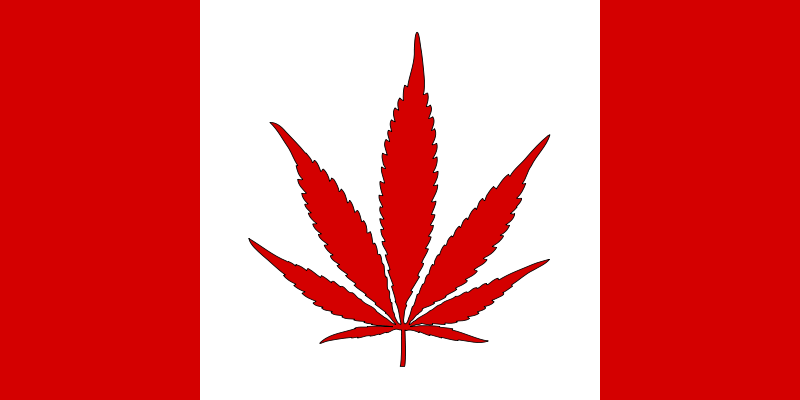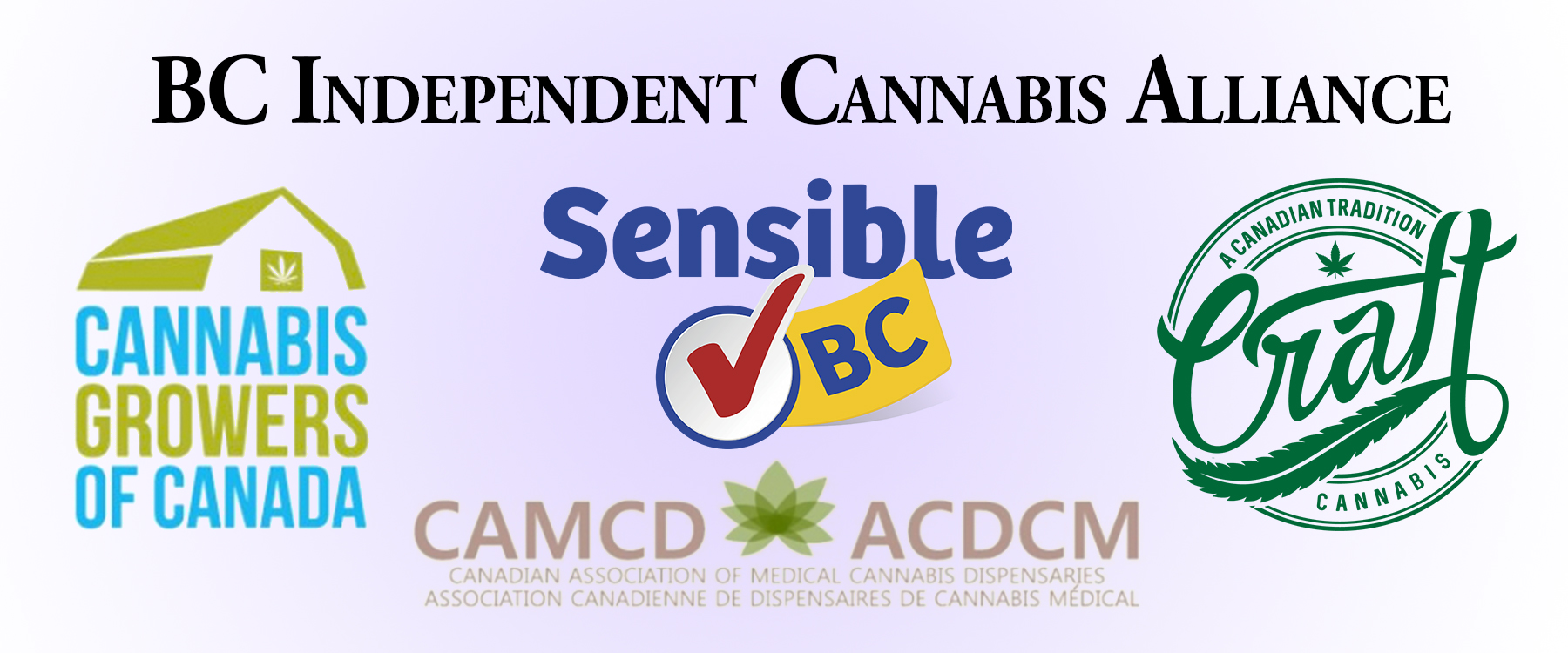BC Medical Cannabis Partners seek provincial program
By Joy Davies
“Don’t Kill My Family”. Those were the words on the sign that hung around David’s neck as he paced back and forth in the bitter cold rain on this Feb. morning, on the lawn of his Member of Parliament’s office. He joined the BC Medical Cannabis Partners and others who came to a national day of protest against Health Canada’s MMAR changes. These changes could cause the death of the second member of this family in just over two years. David, a retired British military pilot and father of four, lost his wife to breast cancer. They knew nothing of cannabis or its medicinal properties, such as how it caused cancerous tumours to eat themselves. The traditional barrage of doctors did not save his wife. They never offered cannabis. The day he had to put his loving wife into palliative care, their teenage daughter Beth was diagnosed with a rare type of brain tumour. His wife died not knowing of the tragic diagnosis of her daughter. David never had time to mourn her death, as he immediately had to find a way to safe Beth’s life. Beth was 17.
 While researching, David came across the word “cannabinoids”. That night, a new journey began for him—a journey that brought hope for Beth. He brought the information to Beth’s oncologist. After a long discussion, Beth’s oncologist agreed to sign her Health Canada MMAR papers, which would allow David to grow her medicine and make the oil that he hoped would save her life. The oncologist had never signed any other patient’s papers before. Beth turned 20 last month. Statistically, Beth should have left this earth 18 months earlier. There have been highs and there have been lows. The lows include four brain surgeries, and her dropping out of university. The highs have been negative MRIs, meaning no tumours. The cannabis oil is working, and there is hope, but she is not completely out of the woods. More experimental natural treatment is coming, and hopefully will be the missing piece to her life-saving puzzle.
While researching, David came across the word “cannabinoids”. That night, a new journey began for him—a journey that brought hope for Beth. He brought the information to Beth’s oncologist. After a long discussion, Beth’s oncologist agreed to sign her Health Canada MMAR papers, which would allow David to grow her medicine and make the oil that he hoped would save her life. The oncologist had never signed any other patient’s papers before. Beth turned 20 last month. Statistically, Beth should have left this earth 18 months earlier. There have been highs and there have been lows. The lows include four brain surgeries, and her dropping out of university. The highs have been negative MRIs, meaning no tumours. The cannabis oil is working, and there is hope, but she is not completely out of the woods. More experimental natural treatment is coming, and hopefully will be the missing piece to her life-saving puzzle.
David has been spending about $200 a month to grow Beth’s licensed medicine and make the high-grade cannabis oil. Now, with the proposed Health Canada changes, David faces having to spend about $3000 a month, and he will not be allowed to make the oil. How can he possibly afford to pay this? What are his choices? Go into debt to pay for the Harper government’s program that stops patients from growing their medicine? Pick a seller from an Internet site and pay the “new prices”? Stop giving the oil to Beth and lose hope? Become a criminal and grow the plant that could save his child’s life? Not one of those choices is rational.
Now, on the eve of a provincial election, the Canadian Medical Cannabis Partners (CMCP) are urging taxpayers to support a provincial medical cannabis program. Real leaders facilitate improvements, not penalties for patients. Medical Cannabis has been legal in Canada for past 12 years, but the program has been poorly run by the federal government.
CMCP is polling all MLAs and candidates before the May 14 vote. B.C. needs a compassionate program that puts the health needs of patients first. “Let them know you want a better health system,” David said, adding, “Your voice can change the direction of health care in this country.” David, a key member, urges you to write your MLA, asking for their position on a Provincial Medical Cannabis Program. He says a message must be sent to all candidates in all ridings that, “it’s time for government to stop abusing its most vulnerable people—the sick and the weak.”
This past Feb., the Partners sent every B.C. MLA a proposal for a provincial program, asking them to step up to the plate and fight for the lives of their constituents. David says that “some MLAs are listening”. Privately, many MLAs have expressed their strong support, but none have requested that an exploratory committee be struck to further the idea. Notably, B.C. opened the door to such a program with the precedent-setting “Insite” supervised injection site, which has saved many lives.
The Canadian Medical Cannabis Partners is a nonprofit organization of volunteer patients and caregivers who have been lobbying provincial governments to strike a task force to set parameters for a provincial medical cannabis program under Section 56 of the CDSA (Controlled Drugs & Substance Act). They are now active in six provinces, and continue to grow. Their goal is to keep the legalization of cannabis for medical purposes federal law while the provinces administer their program for their patients. The program would include patients’ recommendations, and have patients at the decision-making table. Patients are the biggest stakeholders in the change going on, but they were not consulted.
The CMCP’s proposal is designed to start a process that will develop a system that puts the needs of patients first while meeting the needs of government; a program that will eliminate patients, police, fire department staff, and citizens from being placed in dangerous situations due to the criminalization of this medicinal plant. Of course, repealing cannabis prohibition would resolve criminal activity issues, as it would no longer be profitable for criminals to be involved. Note the results in Portugal after 10 years of anti-prohibition—lower crime rates; lower drug use, including a significant drop in drug use amongst youth; and medical treatment for addicts instead of criminalization.
Non-prohibition is a long way off in our country, if it ever comes. David would love that point to be proven wrong. In the meantime, we need to find a way to remove our most vulnerable citizens from harm’s way. We need to provide education to doctors on all aspects of medicinal cannabis. We need reduce our health care budgets and give people a better quality of life.
In 2010 at UBCM, and in 2011 at FCM, our municipal leaders endorsed a resolution to “Decentralize the MMAR (Medical Marihuana Access Regulations) program into the province(s)”. It was a compassionate decision from municipal politicians across Canada. A proposal was written and submitted to both the B.C. and Federal Ministries of Health in 2011. There has been no action from either level of government.
Health Canada’s newly proposed program is worse than the existing one. Our Premier and Minister of Health continue to defer to the federal government. The lobbying efforts have been ongoing for four years, respectfully, through proper protocol. Two levels of government provided letters of support in principal. Still, our provincial leaders continue to say, “this is federal jurisdiction”. Many federal programs are delegated to the provinces, including another controversial one—meat processing. Canadians died due to the federal government’s inability to safely run the program. How many Canadians will die unnecessarily before the provinces step up to the plate with a medical cannabis program? How many more British Columbia citizens will commit suicide because they can’t cope with the pain they have been living with for so long, as they continue to use the numerous pharmaceuticals their physicians prescribe? And yet they don’t offer cannabis, which has been legal in Canada for 13 years, as an option.
In B.C. there were 10 thousand suicides in a 20-year period. According to the Vancouver Sun, in 2006, that was nearly four times more than the murder rate, and more than the number of deaths caused by car accidents. According to Dr. Raymond Lam, head of the Mood Disorders Centre at the University of B.C. Hospital, the most common reason for suicide was “an overwhelming sense of hopelessness”.
Cannabis provides hope. Cannabis leaves, juiced through a wheat grass juicer, is effective medicine, and delivers no euphoric high. But due to the attitude of our governments, which discourage research, this fact is only now being discovered. This harmless plant has been lied about and propagandized for so many years that most believe the lies are truth. Cannabis was listed in the doctors’ pharmacopeia from 1850 to 1943. Since it was removed and pharmaceuticals were included, western doctors lost their education in the power of the cannabis plant. There are over 20 thousand peer-reviewed studies on the benefits of cannabis. In 2011, more people were killed by pharmaceutical drugs than by car accidents. (See “The New Epidemic Sweeping Across America [and it’s Not a Disease]”, Dr. Joseph Mercola, Oct. 26, 2011).
Get engaged in this election!
Write your MLA. Share your story. Go to the All Candidates meeting. Ask each candidate how they will support a provincial medical cannabis program.
Sign the Avaaz petition started by the B.C. chapter of the Canadian Medical Cannabis partners :
Contact: Joy Davies, Director Cell: 604-910-8443
Email: <bcmedicalcannabispartners@gmail.com>




